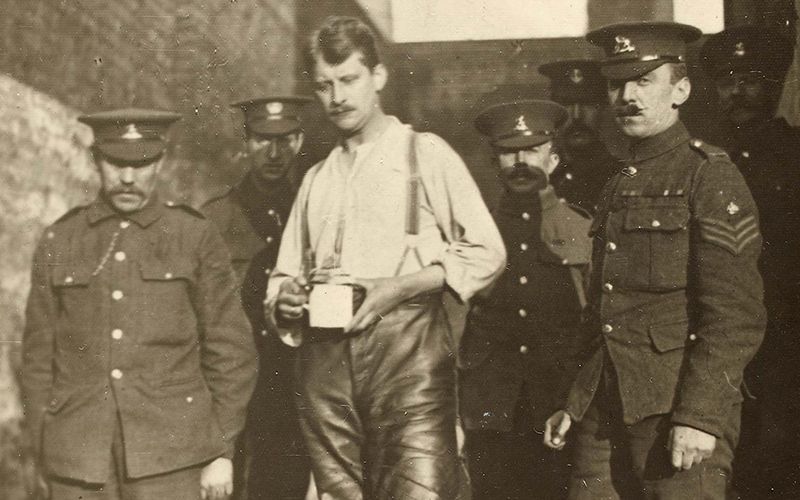You can't grow up in the north of Ireland without confronting the question of what it means to be a man. Sooner or later you're going to ask yourself, or more likely someone's going to tell you.
And it usually doesn't take long because the job description itself isn't long. Generally you'll be told if you're doing it right, or scolded if you're doing it wrong.
So it turns out the question that what it means to be a man is in fact so simple to answer that it's hardly worth talking about. Or at least that's what most people up North will tell you if you have the bad manners to actually ask them.
It's generally a good idea not to ask questions like that in the North. You'll get a reputation pretty quickly if you start, believe me.
And yet it's a perfectly good question. No questions are more worth asking than the ones we believe we have the answer to already. People change over time, and so do their answers, after all.
I have observed with a fair amount of consistency that Irish people teach the largest life lessons to their children through avoidance. The more important a topic is, the more likely it will be shrouded in dense silence. The more urgent a question the more likely it is to be indefinitely put off.
Eventually, if you're paying attention, you'll get the message that there are some conversations that are really too important to ever actually have. That'll shut you up, hopefully.
That's not to suggest that Irish people are cowardly or unsophisticated or timid in the face of the big questions. On the contrary, they’re among the most forthright people in the world.
They just like a bit of nuance, they like to take the edge of things, they're much more comfortable with a bit of ambiguity, in fact they welcome it.
Because there's more room to maneuver when things are various, isn't there? The hardest task you will ever set yourself is to get a room full of Irish people to agree.
Like most teenagers I was, if I’m honest, underwhelmed by the various examples of Irish role models I saw around me growing up. Not that they weren't decent men, taken individually, I suppose.
But it was hard for me to discover someone I wanted to emulate -- someone that I wanted to be, in fact.
In my daily life I was surrounded by schoolteachers, civil servants, county councilors, solicitors, general practitioners, publicans, clergy and so on. They all seemed to get on famously with each other.
They talked about sports and politics and the weather with an ease that was hard to miss. But were you to ask one of them about love or poetry or friendship or their feelings or philosophies they'd dissolve into shame faced silence.
That led to a great discovery -- if you want to clear the room of Irishmen just ask one of them how they feel.
Why is this? One of the first things I learned about Irishmen is how deeply they do actually feel things. So it puzzled me how tongue-tied they could become when asked to discuss something more consequential than the latest GAA results.
Over time I discovered that it's not the conversations they fear so much as what follows them. Feelings are one thing, but owning up to those feelings and then facing the consequences -- that's scary stuff.
So, thanks to all this silence, in Ireland being a man is defined mostly by what you’re not rather than what you are.
You’re not a soft touch, you’re not be too credulous, you’re not too easily taken in, you’re not too emotional, you don’t immediately say what you think and so on.
But it's a shame that we have allowed such a culture of silence to fall over what should be a perfectly natural debate. Because silence, if it goes on too long, can often be mistaken for shame.
Women are to blame for this omerta code too, it must be said. After all, if it made them truly uncomfortable, couldn’t they have done more to dislodge it?
The cradles of manhood are still our schools, both in Ireland and here in the U.S. They should probably be the last places.
But that’s where we first encounter society and its social codes. It’s where we generally find our first crushes, our first dance and all that goes with it too. It’s also where we allow young men who don’t fit the mold to be daily harassed and beaten.
We’ve been looking at a growing bullying crisis in our schools in Ireland and the U.S. for years now without taking action. Why?
Because we can see both the conversation and the consequences. Because some conversations are so important we simply refuse to have them. Because men are defined by what they’re not, not what they are.




Comments